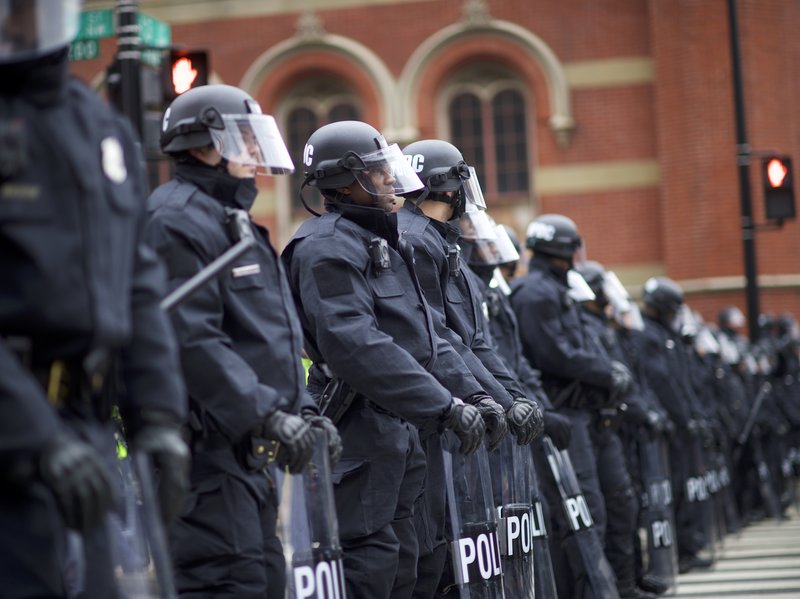

By Leah Timmerman
WASHINGTON, DC – Citing national training standards, duty-to-intervene policies, a federal registry of decertified officers, trauma-informed policing, and increased data collection as top policing reforms, a task force created by the Council on Criminal Justice released a final report this week addressing shortcomings of U.S. policing.
“Nearly a year after George Floyd’s death, far too many people continue to be killed, injured, and poorly served by current policing practices, and policy remedies have been piecemeal at best,” said Task Force Executive Director Nancy La Vigne.
Starting in November 2020, the Task Force on Policing was created to try and solve this problem articulated by La Vigne.
The 12-person panel represented a wide range of perspectives and experiences including law enforcement, civil rights, research, big-city politics, racial justice, police oversight, and family members to individuals lost to police violence.
The task force strived to answer one question of the various proposed reforms: which ones will have the biggest impact on preventing police use of excessive force, reducing racial biases,  increasing police accountability, and improving the relationship between law enforcement and communities?
increasing police accountability, and improving the relationship between law enforcement and communities?
For each reform, members produced an assessment weighing the proposal’s value based on the available research and the expertise and experience of members.
After extensive considerations and the analysis of 300 research reports, the panel reached its final answer in the form of five recommendations.
The first reform, national training standards, should be a priority because American police training is too short, uses ineffective teaching methods, and spends too little time on de-escalation, communication, and critical thinking skills needed on the job, said the task force.
The task force’s second reform, duty-to-intervene policies, means that the “blue code of silence” will be removed. There should be policies that require officers to intervene when witnessing excessive force by colleagues and requiring the reporting of any misconduct.
The third reform listed by the task force is a federal registry of decertified officers to provide that officers who break the law cannot obtain employment in other jurisdictions due to varying decertification policies.
The fourth reform, trauma-informed policing will help build trust with communities, especially Black and Brown communities who are disproportionately affected by police use of excessive force, said the task force.
The final reform proposed by the body recommends improving the collection and transparency of data to allow for more accurate and detailed studies of law enforcement and their use of force in the future to maintain accountability.
The task force, in separate policy briefs, also advised law enforcement to invest in officer wellness programs, hire a more high-quality and diverse workforce, and offload some police functions to other entities like mental health specialists.
The task force recognized that any proposed reforms do not exist in a vacuum, and offered eight additional principles for police departments to implement in order for these reforms to benefit all communities and reach their intended outcomes.
“Turning outrage into lasting change won’t be easy, especially when a core dimension of the problem has stubborn roots in racism that stretch back centuries. But with intention and a common purpose, the nation can advance from last year’s catastrophic events toward a time when fair, effective, and just policing is a reality for all in America,” declared the task force.
“This Task Force was convened to help address that shortcoming [continued police brutality], and these recommendations – along with the panel’s full package of reports – can help set the nation on course toward fair, effective, and just policing for all,” said La Vigne.
Leah Timmerman is a 4th year Political Science and American Studies major at UC Davis. She is originally from Los Angeles, California.
To sign up for our new newsletter – Everyday Injustice – https://tinyurl.com/yyultcf9
Support our work – to become a sustaining at $5 – $10- $25 per month hit the link:




